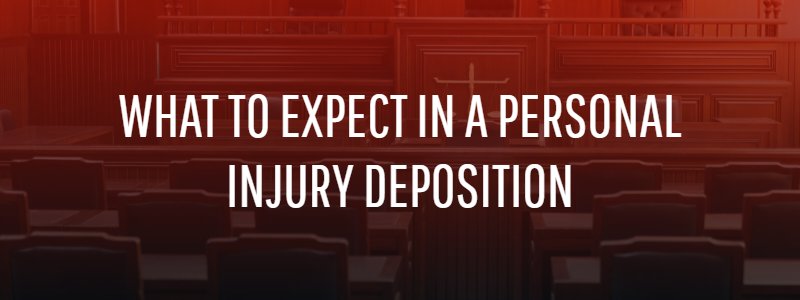Depositions are sworn testimony given under oath and may feel like you are being cross-examined in a courtroom. Timothy J. Ryan & Associates, personal injury attorneys serving Orange County, says that the answers you provide during your deposition will be used as evidence in your settlement negotiations or trial. Fortunately, your personal injury attorney will help you prepare for your deposition so you will know what to expect.
Why are depositions important?
When you file a personal injury claim, you are stating that somebody else is responsible for your injuries and that you want them to be financially responsible for your healthcare costs and your lost wages. To win damages, there must be a strong connection between the liable party’s actions and your injuries, such as recklessness or negligence when acting or not acting in accordance with what a reasonable person would do in a similar situation. For example, a reasonable person would not get behind the wheel while drunk, but if a drunk driver injured you, it would need to be proven that they were inebriated at the crash. Your answers in a deposition can help establish fault in your accident.
Preparing For Your Deposition

Fortunately, you don’t have to worry that you’ll be caught off-guard with a deposition. The other party’s attorney is legally required to provide you with at least 10 days’ notice if personally served or 15 days’ notice if you were being served by mail in accordance with California Code of Civil Procedure (CCP) § 2025.270(a), § 1013. That gives you and your lawyer time to prepare for the questions you will face and which ones you are advised not to answer.
Questions Asked During a Deposition
The first set of questions will be related to your background. You will be asked to provide your full name, your current address, your date of birth, whether or not you are employed, married, in school, and if you have any dependents. These are usually the first questions that are asked during a deposition, and because they are easier, you might notice that your nerves have calmed down a bit.
Your next questions will be about the accident, its cause, and the circumstances surrounding your accident. Types of questions that you may be asked are:
- What do you recall occurring, seeing, or hearing prior to the accident?
- When did the accident occur?
- How did the accident happen?
- Do you have photos or videos of the accident?
- Were there any witnesses?
The next set of questions you will be asked is about your injuries and subsequent healing process. Your attorney will prepare you so that you do not unintentionally downplay your pain and suffering when you provide your answers. Questions include:
- What injuries do you have that were caused by the accident?
- How much time have you missed from work due to your injuries?
- How do your injuries affect your day-to-day life?
- When did you initially seek medical care?
- What medical treatment did you receive?
- Do you have pre-existing injuries or conditions?
- Do you have medical records to support your claims?
How is a deposition recorded?
You will be told in advance how your deposition will be recorded. Typically, depositions go on record via audio, video, or a court stenographer. Other documents may be included with your deposition, such as the police report and your medical records.
What will my personal injury attorney do during my deposition?
Your attorney will have already prepared you for your deposition, but that’s not all. They can be available for you to talk to privately at any point during your deposition if you have a question about a question you are being asked or if you want to discuss your answer with them. However, to be clear, your attorney is prohibited from instructing you on how to answer specific questions.
Will I have an opportunity to review my answers?
Yes, you will be able to review your answers given to the questions you were asked during the deposition. If you want to make any changes to your responses or provide clarity on your answers, then those changes will go on the official transcript along with a note explaining why you made the change. You will then be asked to sign the amended transcription, or a legal official will sign it.
Tips on Giving A Deposition
Giving a deposition can be a nerve-racking experience, but you can go into the process with more confidence with these tips. Remember, this may be your first time giving a deposition, but attorneys who have been in practice for many years have been involved in many depositions. Your attorney is happy to help you.
First, dress professionally. You are not casually visiting a friend, so you should dress neatly and appropriately. Sometimes depositions are recorded by video, so you should think about what you will wear.
Secondly, be honest and stick to the facts. Lying under oath has significant consequences. Your attorney will prepare you so that not only do you give honest answers, you don’t give answers that provide more information than is being asked for. This is not the time to guess or speculate, so if you do not know the answer to a question, don’t say what you think your attorney will want you to say. Admit that you do not know or can’t remember.
Be mindful of your language. You may be a light-hearted jokester or the type who is always fast with a sarcastic comment, but in a deposition, you need to be straightforward to avoid misinterpretation. You just want to give the answers you can provide and say nothing else.
Lastly, do not be afraid to request a break if you are losing mental focus or becoming flustered. You are recalling a potentially traumatic event or discussing details related to your physical healing. Ask for water or to take a rest if you need to in order to complete the process.



